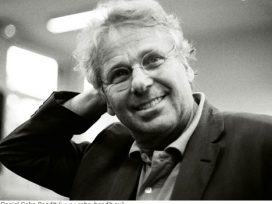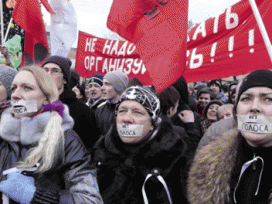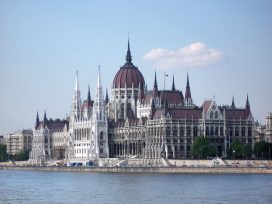From pacifist to cheerleader for US foreign policy, from dissident thinker to purveyor of “political kitsch”, Vaclav Havel was a figure that divided opinion. Nevertheless, right up to his death, Havel continued to pursue a consistent ideal, writes Stefan Auer.
Articles
Read more than 6000 articles in 35 languages from over 90 cultural journals and associates.
Europe invents the Gypsies
The dark side of modernity
Social segregation, cultural appropriation: the six-hundred-year history of the European Roma, as recorded in literature and art, represents the underside of the European subject’s self-invention as agent of civilizing progress in the world, writes Klaus-Michael Bogdal.

Presidentialism: The French disease
An interview with Daniel Cohn-Bendit
The narrowly national agendas of the French presidential candidates, combined with a fixation on individuals over issues, damages the democratic process and runs counter to French interests internationally, argues Daniel Cohn-Bendit in interview with the journal “Esprit”.

Can Russia be modernized?
Problems, causes, opportunities
Plans to modernize Russia’s economy are resisted by bureaucracies benefiting from the country’s status as natural resource appendage of the developed world. That dependency on energy exports hinders political and economic progress is certain: but is high-tech the solution?
The fact that cultural allegiance is most vividly expressed not in ethical behaviour but aggressive parochialism suggests it has been instrumental in protecting human beings throughout their evolution, argues Mark Pagel.

Blatantly rigged elections are the easiest way for the Putin regime to mimic the authoritarian power it does not possess. December’s protests destroyed Putin’s reputation of being in control; even genuinely competitive elections would be unable to restore his legitimacy.
Thematizing the Balkan wars and the Israeli-Palestine conflict, Belgrade’s 2011 October Salon exhibition failed to get beyond dogmatic subjectivity and recycled preconceptions, writes Ana Bogdanovic.
With her finely tuned stories of romantic searching and social anomie, Maja Hrgovic offers a female perspective on the otherwise male literary terrains of wartime trauma, transition and urban bohemianism, writes Leda Sutlovic.
The face of the masses, the gaze of the masses
New matrixes of historical consciousness in inter-war Europe
The objectively perceived mass with its collective “face”, formless and thus formable? Or the mass as a subjective entity, endowed with a perceptual apparatus of its own? The drama of the Weimar Republic unfolded between these two poles, writes Stefan Jonsson.

Democratic revolution, bourgeois revolution, Arab revolution
The political economy of a possible success
If the democratic revolutions are to succeed in the Maghreb and Middle East, these nations must find a way of copying East and Southeast Asia’s economic success. The central element is access to the economic fundamentals that will allow citizens to become true democrats.
A new type of political ecology may lend the Left a broad political platform. But we must first acknowledge wills that are not human. Jonathan Metzger explains why “more-than-humanism” calls for a complete rethink in policy, planning and the law.
Is the return of Serbian nationalism to be dismissed as domestic political point-scoring in an election year, or does it pose a deeper threat to the region? And will Russia step in as the rift with the EU over Kosovo deepens? Slavenka Drakulic considers the possibilities.
Salman Rushdie had to back out of attending the 2012 Jaipur Literature Festival because of an assassination threat against him. The lack of support for Rushdie shows that the defence of free speech is no longer seen as an irrevocable duty, writes Kenan Malik.
Democracy, humanism and diversity have little to do with a “European inheritance”. Yet EU cultural policy instrumentalizes cultural heritage to promote common identity. This narrative bias needs to be challenged, says Erik Hammar.
In a “New Year’s appeal”, thirteen intellectuals and public figures who opposed Hungary’s communist regime in the 1970s outline their concerns about Hungary’s new constitution and call on Europe to help halt a slide towards a new dictatorship.

Towards an illiberal democracy
Hungary's new constitution
Hungary’s new constitution contradicts European democratic standards on numerous counts. It allows the current government to set in stone its economic and social policy; it excludes other nationalities living within Hungary while entitling “ethnic” Hungarians beyond its borders; and, most starkly anti-democratically, it undermines the independence of regulatory institutions ranging from the national bank to the constitutional court and media.